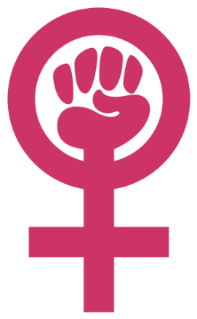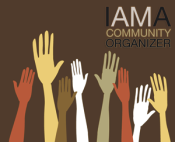Wednesday, 7 September 2011
"The Help" Movie Perpetuates Lousy Roles for Black Actors
Like Granny Standing for Truth, I wouldn't pay to see "The Help" for two reasons:
(1) It won't show up in Brazilian movie theatres anytime soon;
(2) Brazilian television is full of all-white 70-member casts in which one of only two Black actors happens to be a maid. I'm tired of white-centric movies. They almost always show color-aroused discrimination against Blacks in casting (no Blacks in a movie about New York?) and so they are offensive as well as boring.
I'm tired of seeing Black women as maids and Black men "Driving Miss Daisy (sp?)," and I'm not going to encourage Hollywood or Brazilian television by watching that crap.
As you know, I don't use the word "racist" because it comes from the word "race," and "race" doesn't exist as a matter of science. I prefer the terms "color-aroused antagonism" and "color-aroused marginalization" and "color-aroused discrimination in hiring" because these terms are based on the scientific fact of the existence of skin color. We all agree that skin color DOES exist, although we may disagree on its meaning and import in our societies
The word "racist" is too facile, too easy, too general. The term "Color-aroused" forces you to think about what negative behavior is based on the color arousal, such as "discrimination" or "humiliation," or both and more. This teaches us to be more precise and teaches our readers (including our children) the various forms that color-arousal takes and the harms that color-arousal creates, like color-aroused "red-lining" in the housing market, and color-aroused loan denials and/or higher interest rates.
Whites are right to be sick of hearing the word "racism," because it is so general and ambiguous as to be nearly meaningless and always semantically wrong.
"Social-ism" is the belief in and propagation of joint societal social control and use of property, right? So, logically "rac-ism" is the belief in "race" and the propagation of arrangements based on that belief. If we believe that racism exists then we must believe that race exists, and if we believe that "race" exists, then we are "racists."
If YOU or I say that two people are of different "races," then doesn't that make us "racists?" Of course it does, because we are implicitly saying and explicitly implying that we believe in and propagate the belief in the existence of "races."
Since we are propagating the belief in the existence of races, we really ought to ask ourselves, 'Do we believe there are separate biological "races"?'
If so, then let's just acknowledge that, like the Stormfront white supremacist blog, we are "racists." We believe that skin color means "race" and the words can be used interchangeably.
Now, someone will stand forth indignantly and insist that "racism" exists, and it does. "Racism" is a compendium of beliefs and behaviors based on the belief in the existence of "race." Using the word "racism" is one of the behaviors based on the belief in the existence of separate "races."
How can you discriminate against others on the basis of "race" if "race" itself does not exist? The answer is that you can discriminate against others on the basis of "imputed race." Race does not exist, but others im-"put"-e a racial tag on you and then treat you accordingly.
The term "racism" also has another meaning: "color-aroused subjugation and marginalization." But this certainly is confusing to use one word to denote two different and contradictory beliefs systems. Why not say what we mean, instead of using the same word that white supremacists at the Stormfront blog use, while hoping that our readers, Black and white, will understand the difference?
Because Stormfront uses the word "race" in a way that predates our sociology and power-based usage by about 400 years, we are compelled to disambiguate by leaving the words "race" and "racism" to the white supremacists. They used those words first and they have a preexisting claim on them.
As such, it simply far too easy to confuse our readers when we use the same word to mean something entirely different. It's like using the word "sugar" to mean both and "sugar" and "salt." That linguistic practice would cause confusion, chaos and ruined food in the kitchen, just as it presently causes confusion, chaos and ruined interactions in our society, between people of different skin colors and between people of the same skin colors.
Such confusion is to be expected when one root word has been given different and largely contradictory meanings. Our human ability to vocalize sounds and words is far too great for us to allow ourselves be bogged down, and perpetuate confusion, by using one vocalization to mean two different and contradictory things.
(1) It won't show up in Brazilian movie theatres anytime soon;
(2) Brazilian television is full of all-white 70-member casts in which one of only two Black actors happens to be a maid. I'm tired of white-centric movies. They almost always show color-aroused discrimination against Blacks in casting (no Blacks in a movie about New York?) and so they are offensive as well as boring.
I'm tired of seeing Black women as maids and Black men "Driving Miss Daisy (sp?)," and I'm not going to encourage Hollywood or Brazilian television by watching that crap.
As you know, I don't use the word "racist" because it comes from the word "race," and "race" doesn't exist as a matter of science. I prefer the terms "color-aroused antagonism" and "color-aroused marginalization" and "color-aroused discrimination in hiring" because these terms are based on the scientific fact of the existence of skin color. We all agree that skin color DOES exist, although we may disagree on its meaning and import in our societies
The word "racist" is too facile, too easy, too general. The term "Color-aroused" forces you to think about what negative behavior is based on the color arousal, such as "discrimination" or "humiliation," or both and more. This teaches us to be more precise and teaches our readers (including our children) the various forms that color-arousal takes and the harms that color-arousal creates, like color-aroused "red-lining" in the housing market, and color-aroused loan denials and/or higher interest rates.
Whites are right to be sick of hearing the word "racism," because it is so general and ambiguous as to be nearly meaningless and always semantically wrong.
"Social-ism" is the belief in and propagation of joint societal social control and use of property, right? So, logically "rac-ism" is the belief in "race" and the propagation of arrangements based on that belief. If we believe that racism exists then we must believe that race exists, and if we believe that "race" exists, then we are "racists."
If YOU or I say that two people are of different "races," then doesn't that make us "racists?" Of course it does, because we are implicitly saying and explicitly implying that we believe in and propagate the belief in the existence of "races."
Since we are propagating the belief in the existence of races, we really ought to ask ourselves, 'Do we believe there are separate biological "races"?'
If so, then let's just acknowledge that, like the Stormfront white supremacist blog, we are "racists." We believe that skin color means "race" and the words can be used interchangeably.
Now, someone will stand forth indignantly and insist that "racism" exists, and it does. "Racism" is a compendium of beliefs and behaviors based on the belief in the existence of "race." Using the word "racism" is one of the behaviors based on the belief in the existence of separate "races."
How can you discriminate against others on the basis of "race" if "race" itself does not exist? The answer is that you can discriminate against others on the basis of "imputed race." Race does not exist, but others im-"put"-e a racial tag on you and then treat you accordingly.
The term "racism" also has another meaning: "color-aroused subjugation and marginalization." But this certainly is confusing to use one word to denote two different and contradictory beliefs systems. Why not say what we mean, instead of using the same word that white supremacists at the Stormfront blog use, while hoping that our readers, Black and white, will understand the difference?
Because Stormfront uses the word "race" in a way that predates our sociology and power-based usage by about 400 years, we are compelled to disambiguate by leaving the words "race" and "racism" to the white supremacists. They used those words first and they have a preexisting claim on them.
As such, it simply far too easy to confuse our readers when we use the same word to mean something entirely different. It's like using the word "sugar" to mean both and "sugar" and "salt." That linguistic practice would cause confusion, chaos and ruined food in the kitchen, just as it presently causes confusion, chaos and ruined interactions in our society, between people of different skin colors and between people of the same skin colors.
Such confusion is to be expected when one root word has been given different and largely contradictory meanings. Our human ability to vocalize sounds and words is far too great for us to allow ourselves be bogged down, and perpetuate confusion, by using one vocalization to mean two different and contradictory things.
Subscribe to:
Post Comments (Atom)



No comments:
Post a Comment